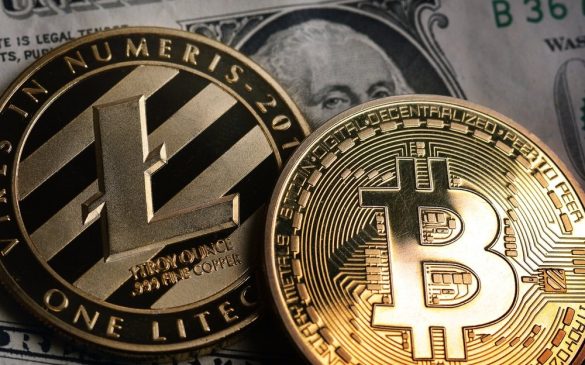By CCN: Most of crypto land celebrated when Flexa and Gemini partnered to deliver digital currency-fueled micro-payments to merchants. Spedn will let consumers shop at major stores including Nordstrom and Lowe’s and pay with crypto across bitcoin, ether, Bitcoin Cash, and Gemini Dollar. But one crypto influencer was left out of the celebration – Litecoin Creator Charlie Lee. That’s because Litecoin was noticeably absent from the list of coins that the Spedn app supports.
Lee tagged Flexa Co-Founder Trevor Filter in a tweet rallying followers to agree that the “app should let us pay with Litecoin at Whole Foods, Gamestop, and thousands of other merchants!” Filter retweeted the message with a mysterious response saying that “retweets don’t equal endorsements…or do they?” That left Crypto Twitter to speculate that the fifth-biggest cryptocurrency would be the next coin to make the list.
Retweets ≠ endorsements (…Or do they?) https://t.co/U71uKOEOSg
— Trevor Filter (@trev) May 16, 2019
Litecoin Is Basically Bitcoin Junior
Litecoin Vice President of Nationwide Merchant Solutions Jon Moore couldn’t agree more. He tweeted:
“The reason Litecoin should be added to Flexa is because #PayWithLitecoin is all about spending and supporting merchants that accept LTC!! It has nothing to do with tech, it’s about sound money, freedom, and supporting crypto adoption.”
Litecoin is meant to be a lot like bitcoin, only faster and eventually more private. The Litecoin team doesn’t seem to mind being the silver to bitcoin’s gold. The LTC price has nearly tripled year-to-date while bitcoin has only doubled.
Say what?😮😎👊🚀🚀 #BTC#LTC https://t.co/b1vVrVt7bN
— johnkimofficial.com ⚡️Chief LTC Evangelist (@johnkim77) May 16, 2019
A Whopping $90 Million Was Spent on Credit Card Processing Fees Last Year
If any app so far has the ability to usher in mainstream adoption of crypto, it’s Flexa’s Spedn. Not only do they make it easier for users to spend crypto as a currency but they slash fees for retailers that suffer from a huge pain point of credit card fees, costs that ultimately trickle down to shoppers. According to crypto exchange Gemini, which was founded by Cameron and Tyler Winklevoss:
“Retailers spent $90 billion on credit card processing fees in 2018. This was almost entirely passed onto customers.”
First real world real crypto purchase that was actually as easy as a credit card! pic.twitter.com/kaejvOKsYO
— Joey Krug (@joeykrug) May 13, 2019
Litecoin Is MIA
The way Spedn works is investors load BTC, ETH, BCH, GUSD (and maybe one day LTC) onto the app. Consumers continue to own the crypto in the app until they spend it. Not everyone is a fan of the fact that the funds are stored on the exchange.
The #Spedn app, built on open #Flexa network uses #crypto stored at #Gemini, therefore: not your keys – not your crypto. Additionally, Flexa collects personally identifiable information, as well as has the right to temporarily delay, hold, or return deposits. #ThisIsntCrypto
— Weiss Ratings (@WeissRatings) May 17, 2019
To spend, users must display a code that gets scanned at the point-of-sale, and the transaction is completed. Retailers don’t take on any volatility risk thanks to Gemini.
“They custody and insure all the funds that are deposited within the app,” stated Flexa Co-Founder and CEO Tyler Spalding in a Yahoo Finance interview.
Flexa and Gemini have done all the work and have the power to dramatically lower fees for merchants. But in order for crypto’s use case as a currency to increase, consumers must begin spending bitcoin, Bitcoin Cash, ether, and Gemini Dollar via the Spedn app in stores. And eventually perhaps Litecoin, too.
Retailers spent 90 billion on credit card processing fees in 2018. This was almost entirely passed on to customers. @FlexaHQ is “designed with merchants in mind, and users experience 0 volatility risk when transacting.” #CryptoNotCredit https://t.co/6RPo8UF7dO
— Gemini (@Gemini) May 16, 2019




